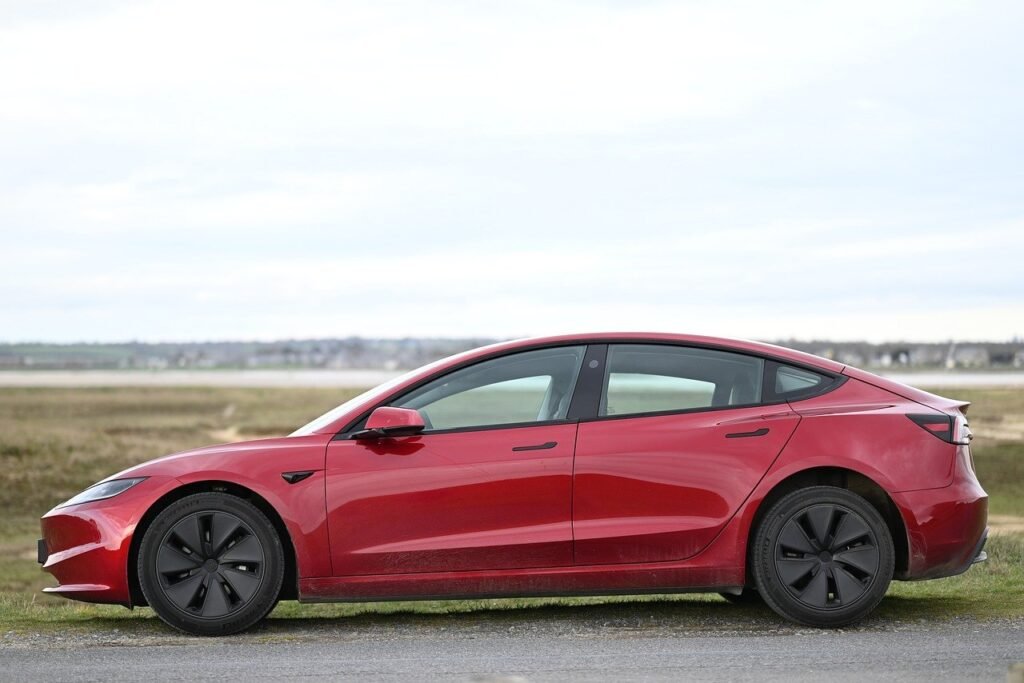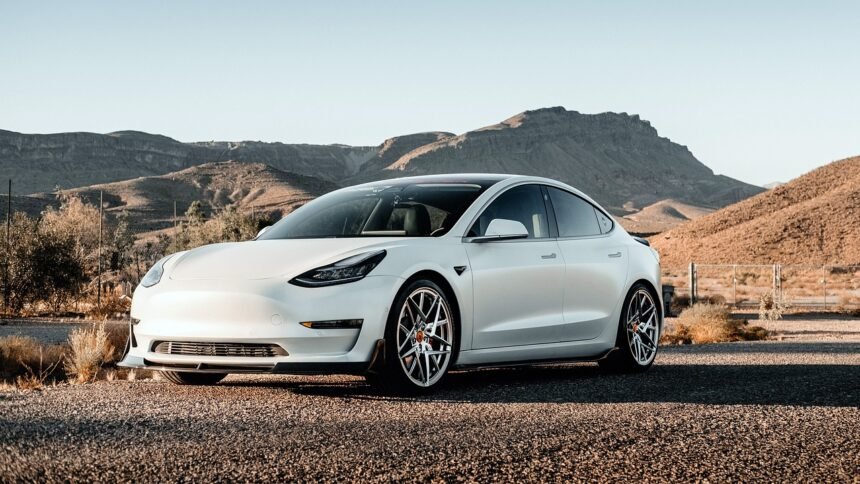Have you ever wondered what it truly costs to own an electric vehicle (EV)? Many people are switching to electric cars, but is the investment worth it in the long run? This article will dive deep into the cost of owning an electric vehicle, breaking down every aspect you need to consider when deciding whether an EV is right for you.
From purchase price to maintenance and fuel savings, this guide provides a comprehensive look at the financial side of owning an electric car. Let’s see how much an electric vehicle could really cost you.
The Initial Cost: Is Buying an Electric Vehicle Expensive?
One of the main barriers for potential EV owners is the initial cost of electric vehicles. Typically, EVs are more expensive upfront than their gasoline-powered counterparts, but this is just one piece of the puzzle. Here’s a look at the factors that influence the upfront cost of owning an electric vehicle:
1. Purchase Price
The average cost of an electric car in 2024 ranges from $30,000 to $60,000, depending on the model. Luxury EVs, such as Tesla’s Model S or Porsche Taycan, can even exceed $100,000. While these numbers may seem high, federal and state incentives can significantly reduce the cost.
2. Government Incentives and Rebates
The U.S. government offers tax credits of up to $7,500 for eligible electric vehicles, which can bring down the price. Many states also offer additional rebates, bringing further savings to EV buyers. It’s important to research what’s available in your state.
3. Financing and Leasing Options
Leasing an electric vehicle can be a more affordable option for those not ready to make a full investment. Many manufacturers offer competitive lease deals, allowing consumers to experience the benefits of EVs without the large upfront costs.
The Hidden Costs of Electric Vehicle Ownership
Beyond the sticker price, there are other hidden costs of owning an electric vehicle that you need to consider. Let’s break down some of these factors:
1. Charging Infrastructure
Owning an EV requires access to a reliable charging station. While most EV owners charge their vehicles at home, installation of a Level 2 charging station can cost between $500 and $2,000, depending on your location and the complexity of the installation. This cost is essential to consider if you want to enjoy fast and convenient charging at home.
2. Public Charging Costs
If you frequently use public charging stations, especially fast chargers, you’ll need to account for these costs. Charging prices vary but typically range from $10 to $30 for a full charge. Some public stations may offer free charging, but many require payment or membership plans.
| Charging Type | Average Cost Per Charge |
|---|---|
| Home Charging | $10–$15 |
| Public Charging | $10–$30 |
| Fast Charging | $15–$40 |

3. Insurance Costs
Insurance for EVs tends to be higher than for gas-powered cars. This is due to the higher cost of repairs, specialized parts, and the advanced technology in electric vehicles. On average, EV insurance premiums can be 10% to 20% higher than for comparable gasoline vehicles.
Maintenance Costs: How Do EVs Compare to Gas Cars?
One of the significant advantages of electric vehicles is their lower maintenance costs. EVs have fewer moving parts than traditional internal combustion engine (ICE) cars, meaning fewer components that can break down. Here’s what you need to know about maintenance costs of owning an electric vehicle:
1. No Oil Changes or Engine Repairs
Because electric vehicles don’t have traditional engines, there’s no need for oil changes, engine tune-ups, or exhaust system repairs. Over time, this can save EV owners hundreds or even thousands of dollars in routine maintenance costs.
2. Battery Maintenance and Replacement
While electric cars don’t require much routine maintenance, their batteries do degrade over time. Most EV manufacturers offer warranties of 8 years or 100,000 miles on the battery. However, replacing a battery outside of warranty can cost between $5,000 and $15,000, depending on the model. This is a critical cost to consider, especially for older EVs.
3. Tire and Brake Wear
EVs tend to go through tires more quickly due to their increased weight and instant torque. However, regenerative braking systems help EVs conserve brake pads, reducing the frequency of brake replacements.
| Maintenance Task | EV Average Cost | Gas Car Average Cost |
|---|---|---|
| Oil Changes | N/A | $30–$100 |
| Brake Pad Replacement | $200–$300 (less frequent) | $300–$500 |
| Tire Replacement | $600–$1,000 | $400–$800 |
| Battery Replacement | $5,000–$15,000 | N/A |
Fuel Costs: How Much Will You Save?
Fuel savings are one of the biggest draws for electric vehicle buyers. The cost of electricity is much lower than gasoline, and the savings can add up significantly over time. Let’s compare the fuel costs of owning an electric vehicle to those of a traditional gas-powered car:
1. Cost of Charging
On average, it costs about $10–$15 to fully charge an electric vehicle at home. Assuming you drive around 1,000 miles per month, the monthly charging cost would be approximately $50 to $70, depending on your electricity rates and driving habits.
2. Cost of Gasoline
In contrast, the average gas-powered car consumes about 12 gallons of gasoline to cover the same distance, costing around $50–$60 per fill-up. This means your monthly gasoline bill could range from $200 to $250.
Resale Value: Will You Get a Good Return on Investment?
The resale value of electric vehicles is still a bit uncertain. Some early EVs have experienced steep depreciation, but newer models, especially from well-known brands, are holding their value better. Factors that can influence an EV’s resale value include:
- Brand reputation (Tesla, for instance, has strong resale values)
- Battery life and warranty status
- Market demand for used EVs
The Environmental Impact: Can You Put a Price on Sustainability?
While the cost of owning an electric vehicle is an important factor, many buyers also consider the environmental benefits. EVs produce zero tailpipe emissions, significantly reducing your carbon footprint. Charging your car from renewable energy sources, such as solar or wind, can further minimize your impact on the environment.
Frequently Asked Questions (FAQs)
Q: How much does it cost to charge an electric vehicle?
A: The cost to fully charge an electric vehicle at home is about $10–$15, depending on electricity rates and the vehicle’s battery capacity.
Q: Are electric vehicles cheaper to maintain than gas cars?
A: Yes, electric vehicles generally have lower maintenance costs because they don’t require oil changes or engine repairs. However, battery replacement can be expensive if it’s not covered under warranty.
Q: Do electric vehicles depreciate faster than gas cars?
A: Some early electric vehicles have experienced rapid depreciation, but newer models from reputable brands are holding their value better.
Q: What incentives are available for electric vehicle buyers in the USA?
A: The federal government offers tax credits of up to $7,500 for eligible EVs, and many states offer additional rebates or incentives.
Q: How long do EV batteries last?
A: Most electric vehicle batteries are designed to last 8 to 10 years or between 100,000 and 150,000 miles. Many manufacturers provide warranties to cover battery replacement.
Conclusion: Is the Cost of Owning an Electric Vehicle Worth It?
In the long run, owning an electric vehicle can save you money on fuel and maintenance, and federal and state incentives can make the initial purchase more affordable. While the cost of owning an electric vehicle includes some hidden expenses like charging infrastructure and insurance, the long-term savings, environmental benefits, and convenience make EVs a worthwhile investment for many drivers.









